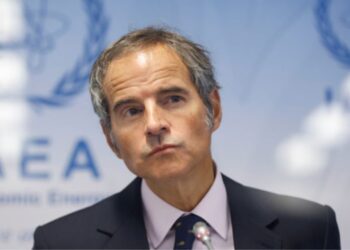Saudi Arabia’s Crown Prince Mohammed bin Salmane began a tour of Asia this week aimed at strengthening ties with the kingdom’s largest energy market and signaling his country’s growing independence from the U.S. ally.
Relations between the Saudi kingdom and the United States have been strained by the decision of oil exporting countries, led by Riyadh and Moscow, to reduce their crude oil production despite soaring prices.
De facto ruler of the kingdom, Mohammed bin Salmane, known as MBS, is attending the G20 summit in Bali, Indonesia on Tuesday. He must then go to “Asian countries”, said the Saudi agency SPA, without detailing its route.
According to South Korean media, he is expected to make a stopover in South Korea for a meeting with the business community. Then attend the Asia-Pacific Economic Cooperation forum in Bangkok, according to Saudi media.
Soaring energy prices had prompted U.S. President Joe Biden to visit Saudi Arabia, the world’s top crude exporter, in July despite his pledge to treat the kingdom as a “pariah” after the 2018 killing of Saudi journalist and critic Jamal Khashoggi by Saudi agents.
In October, the announced drop in oil production angered the White House and fuelled speculation that Riyadh would distance itself from its traditional partner.
The Crown Prince’s tour of Asia makes this hypothesis even more plausible, says Umar Karim, a specialist in Saudi politics at the University of Birmingham.
“This trip is aimed at strengthening coordination with energy markets in Asia, but also to show the Western world, mainly the United States, that Saudi Arabia is not lacking in options in terms of partnerships,” he says.
Amplified interest
At the G20, the White House said that no bilateral meetings were planned between the Saudi and U.S. leaders.
The post-World War II U.S.-Saudi partnership is often described as an “oil for security” deal.
But for the past decade, the main customers for Saudi crude have been China, Japan, South Korea and India.
As a result, Saudi officials have been pushing for the development of ties with Asian countries long before Mohammed bin Salmane was appointed crown prince five years ago, points out Aziz Alghashian, an expert on Saudi foreign policy.
“The market and an economically focused Saudi foreign policy have amplified this interest in Asia,” he adds.
MBS is expected to discuss with Asian leaders projects to facilitate exports to Asia, such as refineries or storage facilities, says Kaho Yu, an expert on Asia’s energy sector at risk assessment firm Verisk Maplecroft.
“It’s not just about buying oil from Saudi Arabia. It’s about developing cooperation across the entire supply chain,” he added.
Saudi Arabia first
Saudi Arabia could also partner with Asian countries on alternatives to crude.
On Monday, oil giant Saudi Aramco and Indonesia’s state-owned Pertamina announced their intention to “explore collaboration” in the areas of hydrogen and ammonia.
MBS’ Asia tour comes ahead of a visit to Saudi Arabia by Chinese President Xi Jinping scheduled for December.
The development of stronger ties with China sends the strongest possible signal of Riyadh’s desire to balance its relations with world powers, adopting a “Saudi Arabia first” policy.
For Torbjorn Soltvedt of Verisk Maplecroft, the Saudis “are still very dependent on the United States for security, but they show that they are exploring other strategic relationships, perhaps gradually trying to become less dependent on the United States.”
“It is very important for the Saudis to show that they are not taking sides” in the power struggle between China and the United States, says Umar Karim.
According to him, in foreign policy, Riyadh wants to be a “full-fledged player, not a lackey or an acolyte of a great power.






